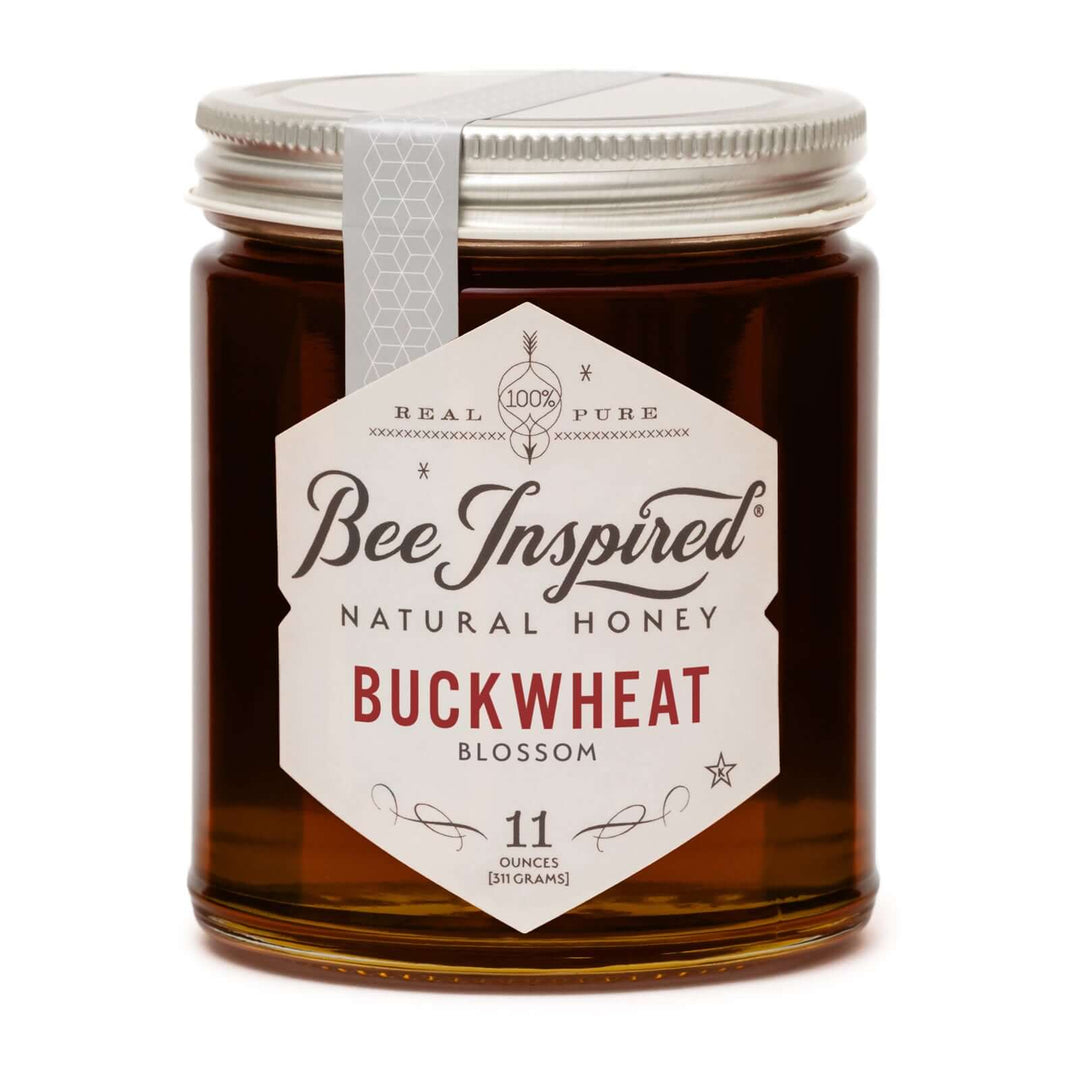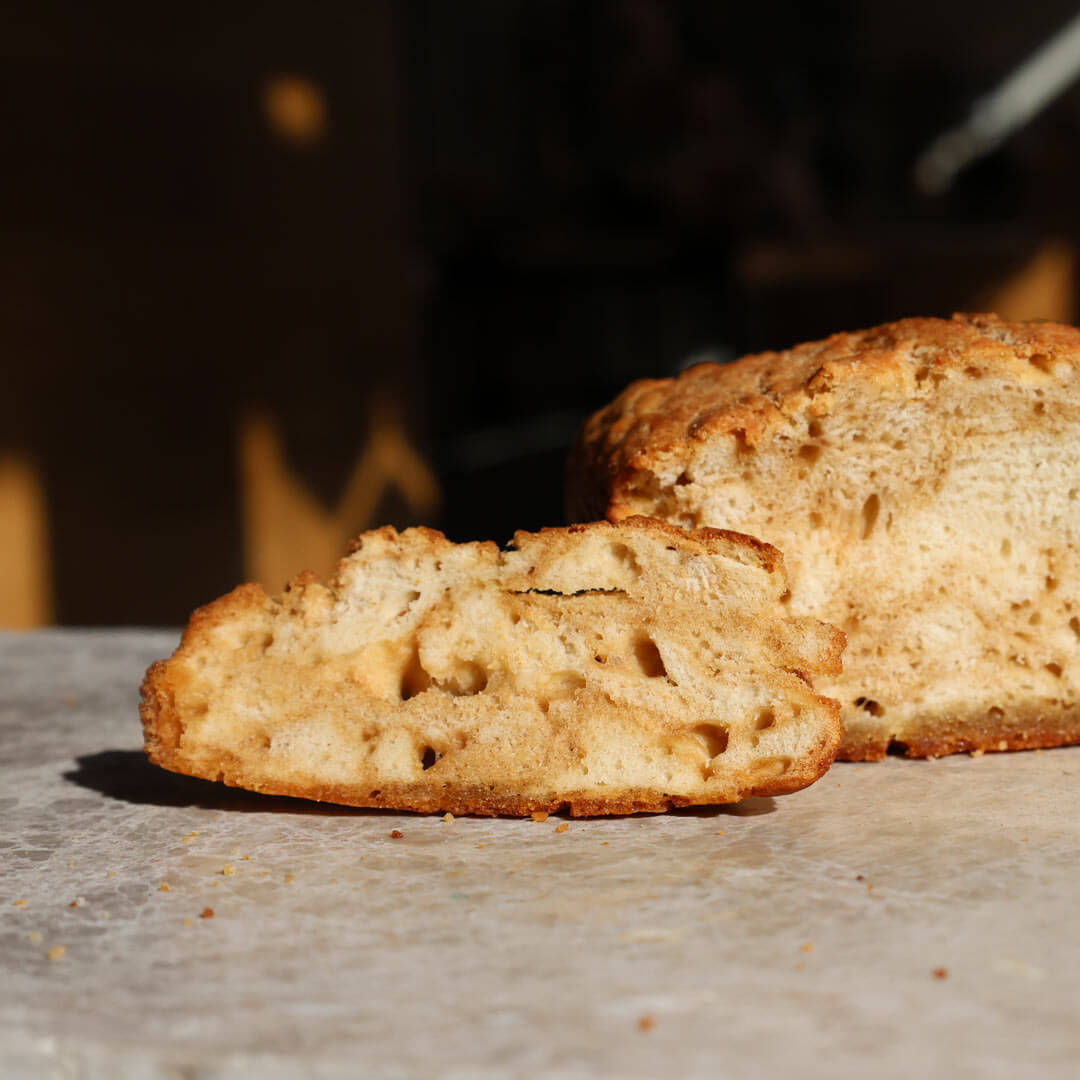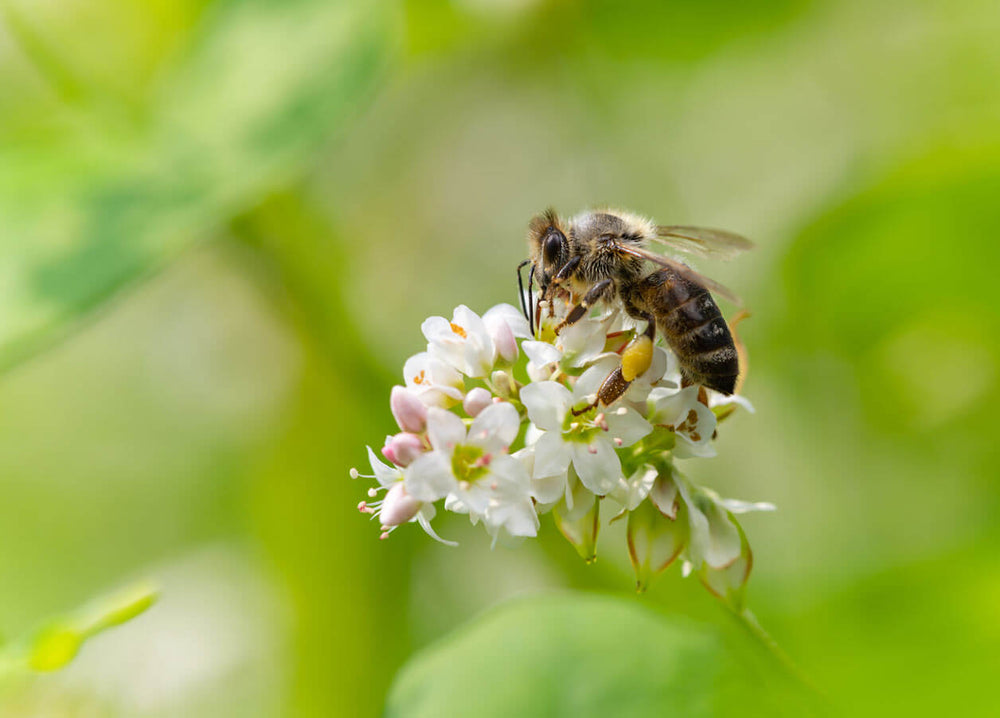Why Our Buckwheat Honey Is So Special: True Buckwheat Honey represents one of nature's most distinctive honey varieties. Its production is highly dependent on successful buckwheat crops, making it particularly rare and sought-after. Buckwheat plants (Fagopyrum esculentum), despite their name, are not related to wheat but rather belong to the same family as rhubarb and sorrel. When these plants burst into bloom with clusters of small white to pinkish flowers, they provide a robust nectar source for honeybees, especially valuable as they bloom when many other plants have finished flowering. The resulting honey is extraordinarily rich in antioxidants, with its dark color serving as visual evidence of its exceptional nutritional profile and potential health benefits.
The Buckwheat Bloom Story: Our Buckwheat Honey tells the fascinating story of a unique agricultural collaboration. Buckwheat, despite its name, is not a true grain but rather a plant in the Polygonaceae family, related to rhubarb and sorrel. It has been cultivated for thousands of years, valued both for its nutritious seeds and its exceptional honey-producing qualities. In early summer, buckwheat fields transform as the plants burst into bloom with clusters of small white to pinkish flowers. These blossoms emit a strong fragrance that attracts honeybees from considerable distances. Each flower contains both male and female reproductive organs, allowing for efficient pollination and reliable nectar production. What makes buckwheat particularly valuable in honey production is its high nectar concentration and its bloom timing – providing abundant resources for bees when many other plants have finished flowering. Beekeepers strategically place hives near expansive buckwheat fields, allowing the bees to collect nectar that will transform into one of nature's most distinctive honey varieties.
Exceptional Health Support: Buckwheat Honey stands out for its remarkable wellness potential
- Contains significantly higher levels of antioxidants than lighter honey varieties
- Provides essential minerals including iron and zinc in notable concentrations
- Offers potential antimicrobial and anti-inflammatory properties
- Serves as a natural cough suppressant for throat discomfort
- Contains prebiotic compounds that may support digestive health
- Provides a natural alternative to processed sweeteners with nutritional benefits
- Delivers a rich source of energy through complex carbohydrates
The Buckwheat Honey Difference: Unlike lighter, more delicate honey varieties, our Buckwheat Honey stands apart with remarkable characteristics
- Flavor Profile: Experience an intensely rich, malty taste with molasses-like depth and earthy undertones that creates a bold and memorable tasting experience.
- Color: Admire its distinctive deep, almost black appearance that signals its exceptional concentration of beneficial plant compounds.
- Nutritional Density: Benefit from its remarkably high levels of antioxidants, minerals, and beneficial compounds that exceed those found in lighter honey varieties.
- Aromatic Intensity: Appreciate its strong, distinctive aroma that enhances its sensory appeal.
- Natural Crystallization: Recognize its authentic nature – as a pure, raw honey, it may naturally crystallize over time, a sign of quality rather than a flaw. Simply warm gently to restore its liquid state.
Serving Suggestions: Elevate your culinary experiences with our premium Buckwheat Honey
- Incorporate into bread recipes for exceptional depth of flavor
Use in Pecan Pie or Pumpkin Pie for rich sweetness with character
- Add to BBQ sauce for smoked meats to enhance complexity
- Create distinctive Blueberry BBQ Sauce with unique sweet-savory balance
- Use in beer bread for authentic artisanal flavor
- Drizzle over roasted butternut or acorn squash for caramelized sweetness
- Pair with bold cheeses for a sophisticated tasting experience
Frequently Asked Questions:
1. Why is Buckwheat Honey so dark compared to other honey varieties? Buckwheat Honey's distinctive deep, almost black color comes from its exceptionally high concentration of plant-derived polyphenols and other beneficial compounds. These antioxidant-rich substances are transferred from the buckwheat blossoms into the honey through the bees' nectar collection. The color intensity serves as a visual indicator of the honey's remarkable antioxidant content, which is significantly higher than that found in lighter honey varieties. This natural richness in bioactive compounds is what gives Buckwheat Honey both its distinctive appearance and its potential health benefits.
2. How does Buckwheat Honey compare to Manuka Honey for health benefits? While Manuka Honey is well-known for its potential health benefits, research suggests Buckwheat Honey may offer certain superior properties, including higher overall antioxidant levels. Buckwheat Honey contains a unique profile of beneficial compounds, including minerals like iron and zinc, along with phenolic acids that contribute to its potential antimicrobial and anti-inflammatory effects. Its robust nutritional profile makes it particularly valued for natural wellness support, including soothing throat discomfort and potentially supporting immune function, often at a more accessible price point than premium Manuka varieties.
3. Who would most appreciate Buckwheat Honey's distinctive flavor? Buckwheat Honey is particularly appealing to those who enjoy bold, robust flavors in their food and beverages. We often describe it as the "stout" of honey, making it perfect for enthusiasts of deep, rich chocolate, big red wines, and dark craft beers. Its molasses-like character with earthy undertones creates a sophisticated taste experience that stands up to strong flavor pairings. Culinary adventurers who appreciate complexity and depth in natural foods will find Buckwheat Honey's distinctive profile especially rewarding, as it offers a more intense alternative to milder honey varieties.
4. What makes Buckwheat Honey particularly good for baking and cooking? Buckwheat Honey's robust flavor profile and molasses-like character make it exceptionally well-suited for culinary applications where depth and complexity are desired. Its strong taste stands up to the heat of baking without losing character, making it ideal for bread recipes, Pecan Pie, and Pumpkin Pie. In savory applications, it adds remarkable dimension to BBQ sauces and glazes for smoked meats, creating a sophisticated sweet-savory balance. Its distinctive flavor also pairs beautifully with winter squashes like butternut and acorn, enhancing their natural sweetness while adding complexity not possible with lighter honey varieties.
5. Is it normal for Buckwheat Honey to crystallize? Yes, crystallization is a natural process in raw, unprocessed honey and indicates authenticity. As a pure, raw product, our Buckwheat Honey may naturally crystallize over time – a sign of quality, not deterioration. If crystallization occurs, simply place the jar in warm water to gently restore its liquid consistency without compromising its beneficial properties or distinctive flavor profile.

























